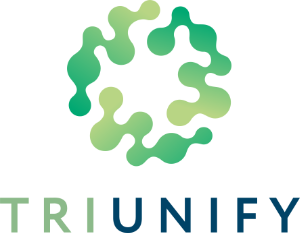What is Rapid Transformational Therapy and How Can it Help?
Rapid Transformational Therapy (RTT) is an emerging format of therapy that claims to bring rapid changes in a shorter amount of time than many traditional and more established psychotherapies. Learn more about what RTT is and how it works to create positive change in life.

What is Rapid Transformational Therapy?
Rapid Transformational Therapy combines elements from cognitive behavioral therapy, neuroscience and hypnotherapy to help people identify and modify the beliefs, habits and anxieties that are preventing them from achieving their goals. RTT seeks to bring fast and lasting transformation in a single session as opposed to traditional psychotherapies that often spread across multiple sessions over a period of weeks or months.
RTT was developed by celebrity hypnotherapist Marisa Peer, who herself has the following to say about her brainchild: “I am a great believer that you cannot fix what you don’t understand, and RTT® works by first understanding how you got your issues and then freeing you from them for good by understanding the Role, Function and Purpose of the issue.”
How Does RTT Differ From Traditional Talking Therapies?
Unlike traditional psychotherapy which is often focused on identifying and understanding past experiences, Rapid Transformational Therapy instead focuses on helping people recognize the root cause of their issues and develop new strategies to address them. This shift in focus allows for measurable results in a shorter period of time that can create lasting change in a person’s life. Practitioners use hypnosis to access the subconscious mind, allowing for deeper exploration into patterns and behaviors that may be inhibiting personal growth. RTT helps individuals find patterns that are limiting them and gain control over negative emotions or beliefs.
Rapid Transformational Therapy can help a client:
* uncover the root cause of why they feel the way they do;
* discover the origin of the beliefs and behaviors that have led to their issue;
* supports the client in transforming their current issue and moving forward with a new set of more beneficial and positive beliefs.
What Can RTT be Used to Treat?
RTT can be used to treat a variety of mental, emotional, and physical issues. Conditions like depression, anxiety, phobias, stress management, trauma resolution, addictive behaviors and more can be addressed with RTT techniques. It offers an alternative way for people to address these issues and find relief faster than traditional psychotherapy. The techniques are used to gain clarity on current patterns and underlying beliefs that may be contributing to the issue so they can create meaningful change.
What is the Process of a Typical RTT Session?
Most Rapid Transformational Therapy sessions are conducted in the same way. The therapist helps the patient to become deeply relaxed, using a combination of relaxation techniques, visualizations, and guided meditation. Once in this receptive state, the therapist is able to access the subconscious mind and identify old blocks and patterns that may be causing issues. After an insight is gained as to how it has affected behavior in the past and present, positive changes can be made towards desired goals. The person's thoughts are then re-framed with positive affirmations and new ideas created for future success.
How Does Rapid Transformational Therapy Help Patients Achieve Positive Change Quickly?
Rapid Transformational Therapy (RTT) works quickly because it is able to access and address the root causes of a person's issues in a short amount of time. By working with the subconscious mind, the therapist is able to identify any unhelpful beliefs and associated emotions that could be blocking progress. From there, therapeutic techniques can be used to 'rewrite' lifelong patterns, thought patterns and behaviors that limit a person’s success. Once positive change has been achieved, these new attitudes are firmly embedded into the subconscious mind so that clients can start living their lives fearlessly and passionately.
RTT: is it valid?
I have personally undergone a handful RTT sessions and used it more then hundred times with my clients. Personally I don't like quick fixes, therefore I always used it as part of a bigger plan. Is RTT valid? I would say yes, since it indeed delivers good or even great results in lesser amounts of time than traditional talk therapy.
However, strictly speaking it is NOT evidence-based and in most cases the relationship one has with a coach of therapist is the most essential part of the work. Furthermore I don't like the marketing talk ('talk therapy doesn't work, RTT is the best out there') and the high expectations of a single-session solution (even in two or three sessions the results RTT delivers are far above average). We mostly use RTT if people need precision in specific work on emotional or behavioral patterns they don't understand.
